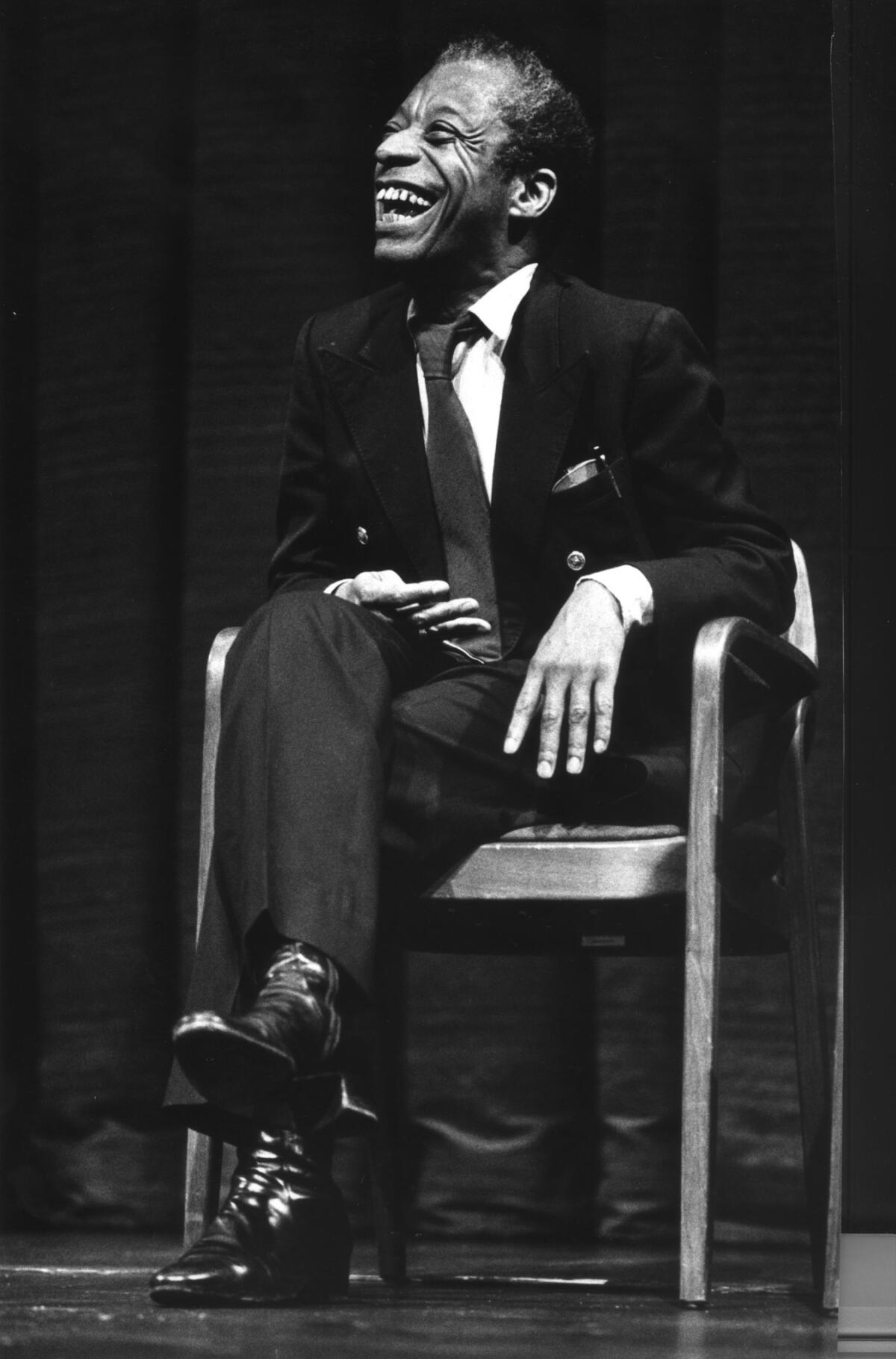The Daphnes announce shortlist for the best books of 1963

James Baldwin, shown here in 1979, is a finalist for the first ever Daphne Awards, designed to recognize then-unacknowledged classics from 50 years ago.
The first-ever Daphne awards shortlist was announced Friday evening in Chicago, setting the stage to declare the best books of 1963.
Yes, there were plenty of literary prizes in 1963, but they went to the wrong books. At least that’s the idea behind the awards, created by Bookslut’s editor Jessa Crispin. This happens: Famously, “Citizen Kane,” declared by film historians the greatest film ever made, didn’t get the Oscar -- the forgotten drama “How Green Was My Valley” did.
The Chicago event took the form of a literary salon featuring deviled eggs, Bundt cake and whiskey. “All of the whiskey* will go to the person who can answer which two books from our fiction longlist begin with someone waking up after a failed suicide attempt,” Crispin wrote in advance, footnoting, “* All of the whiskey being an inch and a half at the bottom of the bottle.”
All it takes is a quick glance at the books that were recognized in 1963 to see why the Daphnes are a worthy corrective. “Morte d’Urban” by J. F. Powers won the National Book Award for fiction; the Pulitzer for fiction went to “The Reivers” by William Faulkner. Sure, Faulkner is a Nobel Prize winner, but that had happened more than a decade earlier; neither of these two novels has survived the test of time.
And in 1963, the Pulitzer Prize for poetry went to “Pictures from Brueghel” by William Carlos Williams (who had passed away), while the National Book Award went to William Stafford for “Traveling Through the Dark.” There were a lot of runners-up for the National Book Award in poetry -- eight poets in all -- but only one woman made the list (Anne Sexton). The Daphne list inverts that equation, with one man and six women -- including Adrienne Rich and Gwendolyn Brooks -- in the running.
The National Book Foundation wasn’t yet honoring kids awards, but years like 1963 show why they would have to in the future: “Where the Wild Things Are” by Maurice Sendak was published that year. So was “Encyclopedia Brown, Boy Detective” by Donald J. Sobol. And Edward Gorey’s “The Gashleycrumb Tinies” and more.
Here are the shortlisted books for the Daphne Awards for 1963.
Poetry
“Burning Perch” by Louis MacNeice
“Snapshots of a Daughter-in-Law” by Adrienne Rich
“Requiem” by Anna Akhmatova
“Selected Poems” by Gwendolyn Brooks
“Five Senses” by Judith Wright
“Poems” by Gwen Harwood
“At the End of the Open Road” by Louis Simpson
Children’s Literature
“The Dot and the Line” by Norton Juster
“Where the Wild Things Are” by Maurice Sendak
“Mr. Rabbit” by Charlotte Zolotow
“Harold’s ABC” by Crockett Johnson Lafcadio,
“The Lion Who Shot Back” by Shel Silverstein
“The Moon by Night” by Madeline L’Engle
“Encyclopedia Brown, Boy Detective” by Donald J. Sobol
“Gashlycrumb Tinies” by Edward Gorey
Nonfiction
“The Fire Next Time” by James Baldwin
“Anti-Intellectualism in American Life” by Richard Hofstadter
“Destruction of Dresden” by David Irving
“Eichmann in Jerusalem” by Hannah Arendt
“The Reawakening” by Primo Levi
“The Making of the English Working Class” by E.P. Thompson
Fiction
“Hopscotch” by Julio Cortazar
“The Bell Jar” by Sylvia Plath
“The Grifters” by Jim Thompson
“The Clown” by Heinrich Boll
“Ice Palace” by Tarjei Vesaas
“Dreambook for Our Time” by Tadeusz Konwicki
“The Sailor Who Fell from Grace with the Sea” by Yukio Mishima
ALSO:
Announcing the L.A. Times Book Prize finalists for 2013
Hundreds of Anne Frank books defaced in Tokyo libraries
“MFA vs. NYC” debates the usefulness of a creative writing degree
Carolyn Kellogg: Join me on Twitter, Facebook and Google+
More to Read
Sign up for our Book Club newsletter
Get the latest news, events and more from the Los Angeles Times Book Club, and help us get L.A. reading and talking.
You may occasionally receive promotional content from the Los Angeles Times.









